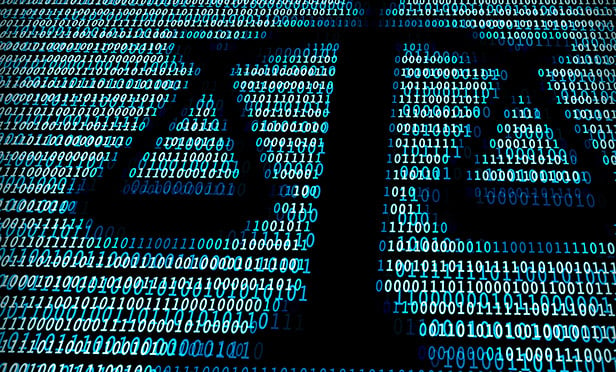Will the rise of artificial intelligence lead to more job cuts at law firms?
PwC report argues AI could create more jobs than it displaces over the next 20 years
July 18, 2018 at 07:09 AM
4 minute read
The original version of this story was published on Law.com
Artificial intelligence (AI) could create more jobs than it displaces in the next 20 years, according to a new report by PwC, despite concerns that new technology could lead to widespread cuts across the legal profession.
PwC's report cites the "professional, scientific and technical services" sector – which includes law – as one of two sectors expected to see the largest net increase in jobs as a result of the rise of AI, with a 16% increase expected by 2038.
John Hawksworth, chief economist at PwC and author of the report, says lower skilled jobs are most at risk, such as clerical and research roles, "which could now be open to automation".
The rapid rise in the adoption of AI technology has prompted expectations that law firms will look to automate more low-level work, reducing their reliance on junior and support staff, and earlier this year commercial property company CBRE found that almost half of the largest law firms in London are expecting to see job cuts as a result of the increasing use of AI.
Meanwhile, a Law Society report published last October found that 38% of large law firms had replaced work previously carried out by non-fee-earning staff by automated, IT-based systems during the 2016-17 financial year.
Clyde & Co commercial litigation partner Tom White, who has a practice focus on the IT sector and has written about the use of AI by professional services firms, says there will be an "inevitable impact" as AI "strips out a layer of work", and that "fact-finding processes will diminish". He adds: "Support staff will always be the first to feel it. Secretarial is already shrinking."
For fee earners, however, the picture could be more positive. As Hawksworth says: "[Automation] might also allow lawyers to spend more time adding value by using their expert judgement and taking on additional cases. The growth in jobs, as for accounting, might come indirectly via the extra economic growth that AI and related technologies would generate, so leading to a greater demand for legal services in a larger economy."
This view is shared by many industry players.
"It's a journey which many firms are now going through. [The rise of AI] is going to happen, so how are we going to embrace it?" asks Ashurst's Mike Polson, director of the firm's legal services innovation arm Ashurst Advance. "It is more an opportunity than a threat. It's looking to replace more mundane tasks, but advisory work is the reserve of lawyers.
"For many lawyers, [AI] means concern rather than opportunity. But things like contract automation have been around for a while," he adds. "It offers quality in terms of consistency, and there are an increasing range of tools to automate. But there is now the need for a range of skills. I don't see too much of a challenge."
The benefits of AI are most likely to be seen in process-driven work, such as in insurance and personal injury claims, but for higher-value endeavours, Polson says it is unlikely AI will threaten cut-and-thrust fee-earning work: "I don't see any threat to the advisory element of legal practice. Tech is important – but it won't take you to the final answer."
Similarly, Herbert Smith Freehills global alternative legal services head Libby Jackson shrugs off any concerns over the effect of AI on fee-earning work in general, saying there is always a "tremendous value to human judgement", adding that "tech is enabling a different way of working".
A raft of top firms have adopted AI technology in recent years. Earlier this week, Eversheds Sutherland agreed a partnership with Luminance, the Slaughter and May-backed venture that uses pattern recognition and machine learning algorithms to read legal documents.
Freshfields Bruckhaus Deringer, Clifford Chance and DLA Piper, meanwhile, have partnered with rival provider Kira Systems, while firms such Linklaters and BCLP have adopted RAVN's AI technology.
NOT FOR REPRINT
© 2025 ALM Global, LLC, All Rights Reserved. Request academic re-use from www.copyright.com. All other uses, submit a request to [email protected]. For more information visit Asset & Logo Licensing.
You Might Like
View All

Appeal Pending: Governor's Selected Candidate Sworn Into St. Louis County Prosecutor's Office
6 minute read
KPMG Law US Seeks Alternative Business License, Shaking Up Legal Status Quo
3 minute read
In Free Agent Lateral Era, Big Law Has 'Entire Teams Dedicated to Identifying' Top Talent
4 minute readTrending Stories
- 1Pharma Company Faces Breach-of-Contract Claim Over $1.3 Million in Unpaid Invoices
- 2KPMG Law Seeks Alternative Business License, Shaking Up Legal Status Quo
- 3Pittsburgh's Reed Smith, K&L Gates Join Fight to Save Nippon Steel-U.S. Steel Merger
- 4Milbank, Wachtell, Ropes and Pittsburgh Duo Aim to Save Nippon Steel-U.S. Steel Merger
- 5A Top Connecticut Lawyer Has Resigned
Who Got The Work
Michael G. Bongiorno, Andrew Scott Dulberg and Elizabeth E. Driscoll from Wilmer Cutler Pickering Hale and Dorr have stepped in to represent Symbotic Inc., an A.I.-enabled technology platform that focuses on increasing supply chain efficiency, and other defendants in a pending shareholder derivative lawsuit. The case, filed Oct. 2 in Massachusetts District Court by the Brown Law Firm on behalf of Stephen Austen, accuses certain officers and directors of misleading investors in regard to Symbotic's potential for margin growth by failing to disclose that the company was not equipped to timely deploy its systems or manage expenses through project delays. The case, assigned to U.S. District Judge Nathaniel M. Gorton, is 1:24-cv-12522, Austen v. Cohen et al.
Who Got The Work
Edmund Polubinski and Marie Killmond of Davis Polk & Wardwell have entered appearances for data platform software development company MongoDB and other defendants in a pending shareholder derivative lawsuit. The action, filed Oct. 7 in New York Southern District Court by the Brown Law Firm, accuses the company's directors and/or officers of falsely expressing confidence in the company’s restructuring of its sales incentive plan and downplaying the severity of decreases in its upfront commitments. The case is 1:24-cv-07594, Roy v. Ittycheria et al.
Who Got The Work
Amy O. Bruchs and Kurt F. Ellison of Michael Best & Friedrich have entered appearances for Epic Systems Corp. in a pending employment discrimination lawsuit. The suit was filed Sept. 7 in Wisconsin Western District Court by Levine Eisberner LLC and Siri & Glimstad on behalf of a project manager who claims that he was wrongfully terminated after applying for a religious exemption to the defendant's COVID-19 vaccine mandate. The case, assigned to U.S. Magistrate Judge Anita Marie Boor, is 3:24-cv-00630, Secker, Nathan v. Epic Systems Corporation.
Who Got The Work
David X. Sullivan, Thomas J. Finn and Gregory A. Hall from McCarter & English have entered appearances for Sunrun Installation Services in a pending civil rights lawsuit. The complaint was filed Sept. 4 in Connecticut District Court by attorney Robert M. Berke on behalf of former employee George Edward Steins, who was arrested and charged with employing an unregistered home improvement salesperson. The complaint alleges that had Sunrun informed the Connecticut Department of Consumer Protection that the plaintiff's employment had ended in 2017 and that he no longer held Sunrun's home improvement contractor license, he would not have been hit with charges, which were dismissed in May 2024. The case, assigned to U.S. District Judge Jeffrey A. Meyer, is 3:24-cv-01423, Steins v. Sunrun, Inc. et al.
Who Got The Work
Greenberg Traurig shareholder Joshua L. Raskin has entered an appearance for boohoo.com UK Ltd. in a pending patent infringement lawsuit. The suit, filed Sept. 3 in Texas Eastern District Court by Rozier Hardt McDonough on behalf of Alto Dynamics, asserts five patents related to an online shopping platform. The case, assigned to U.S. District Judge Rodney Gilstrap, is 2:24-cv-00719, Alto Dynamics, LLC v. boohoo.com UK Limited.
Featured Firms
Law Offices of Gary Martin Hays & Associates, P.C.
(470) 294-1674
Law Offices of Mark E. Salomone
(857) 444-6468
Smith & Hassler
(713) 739-1250









